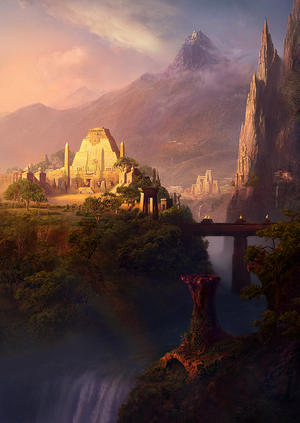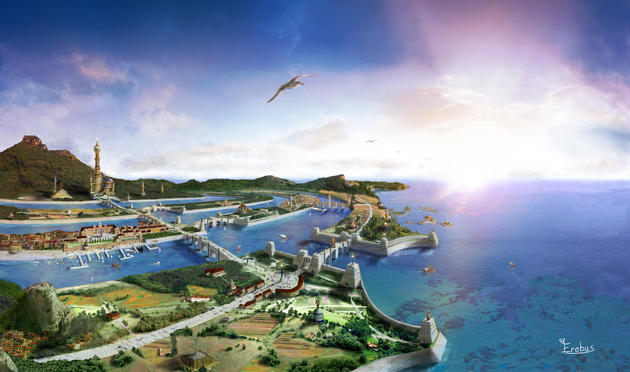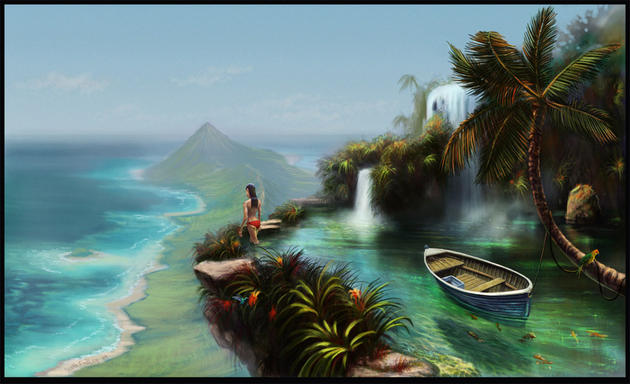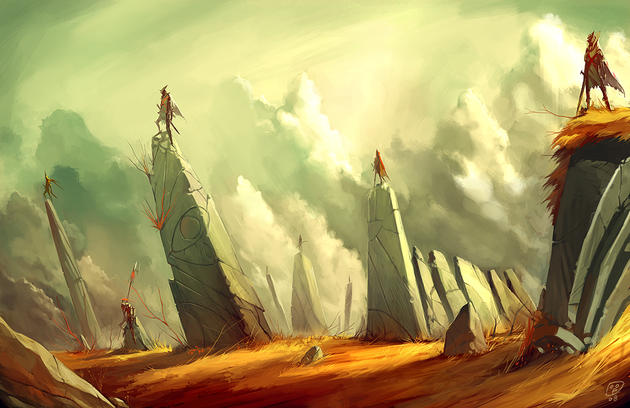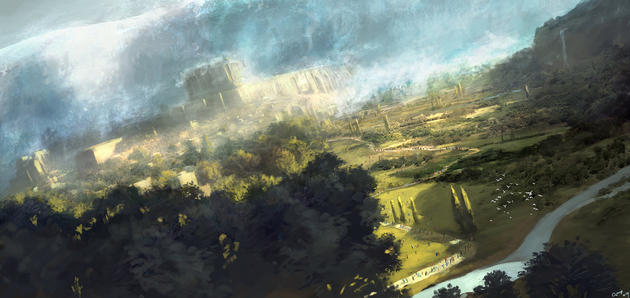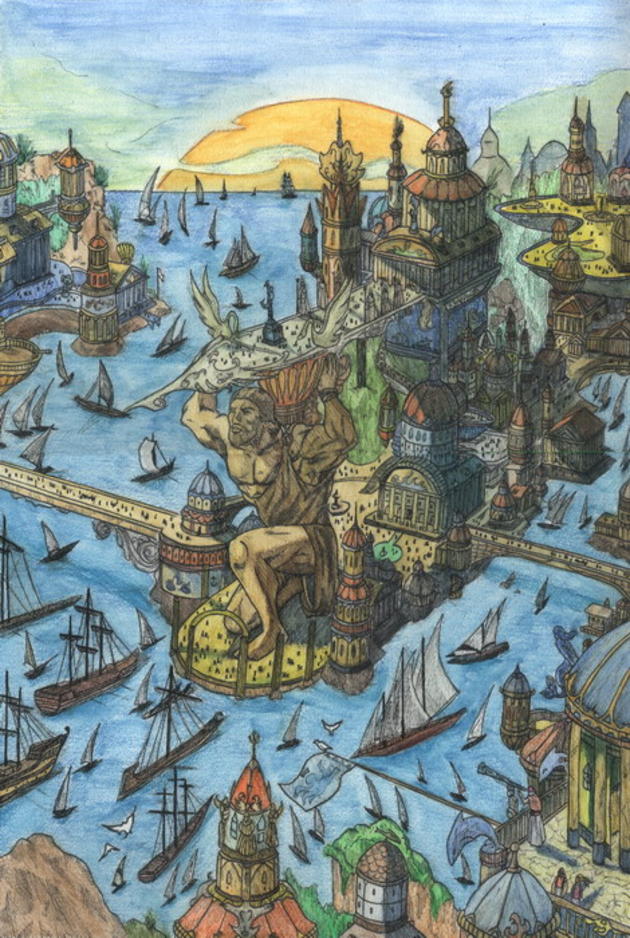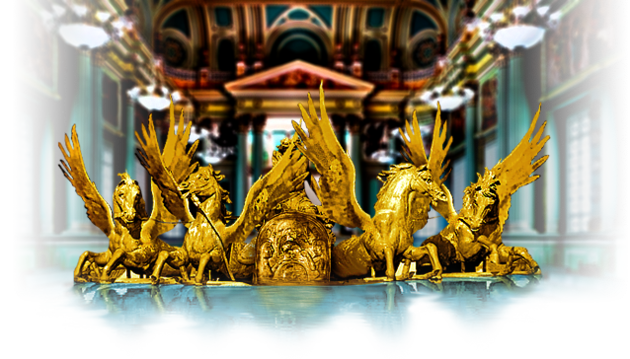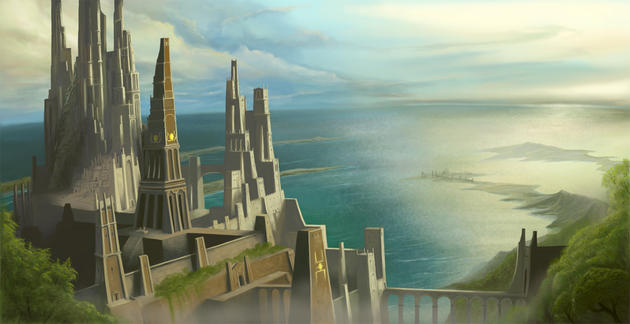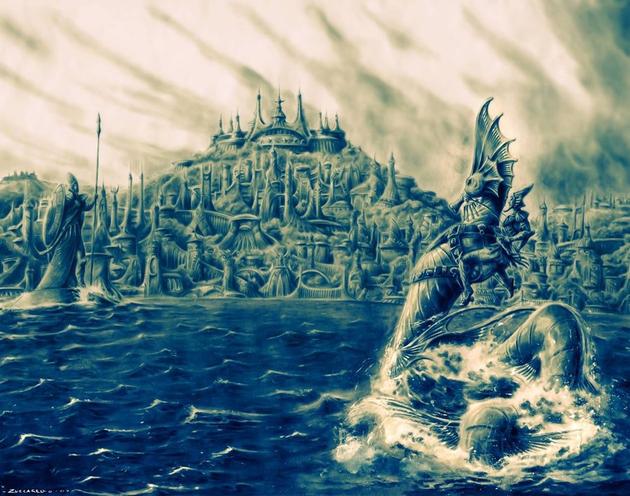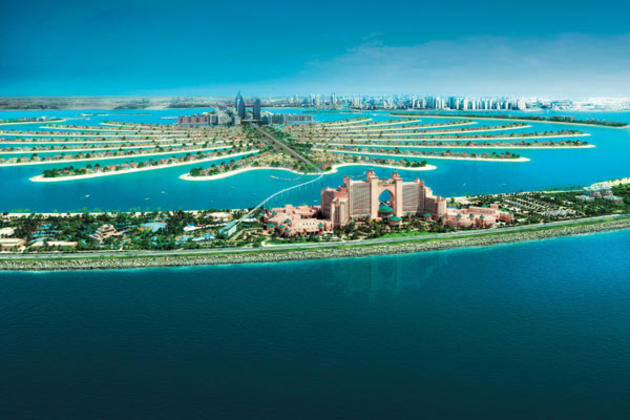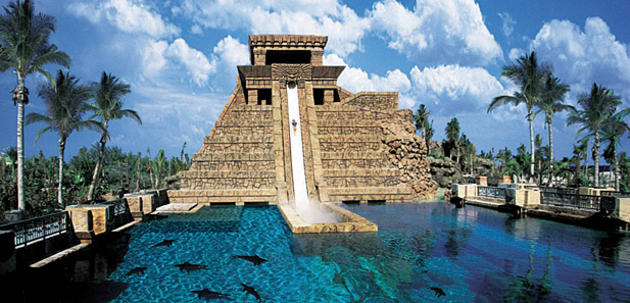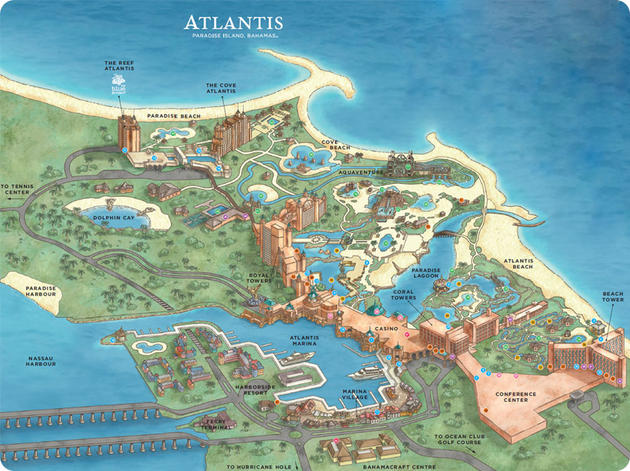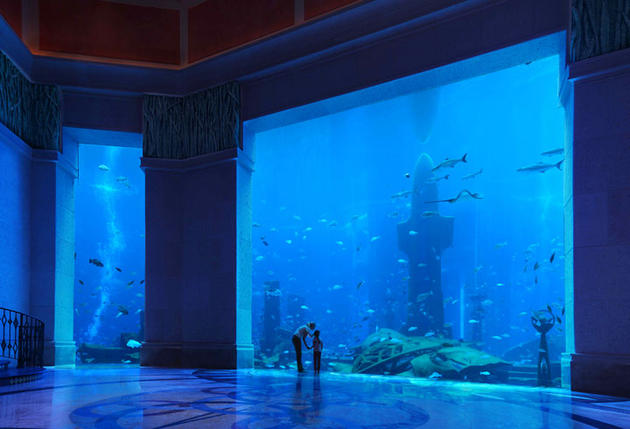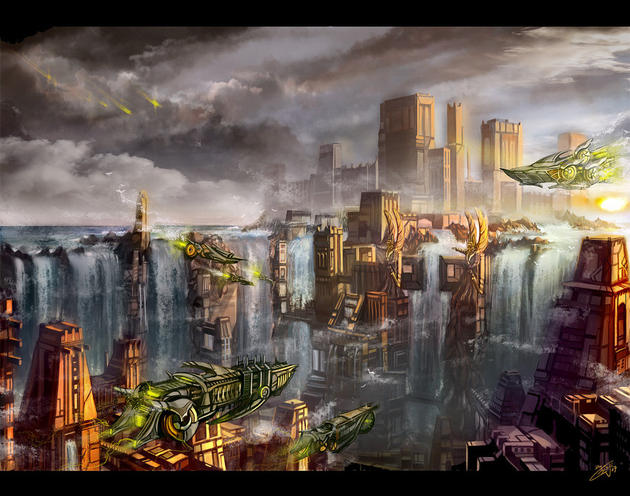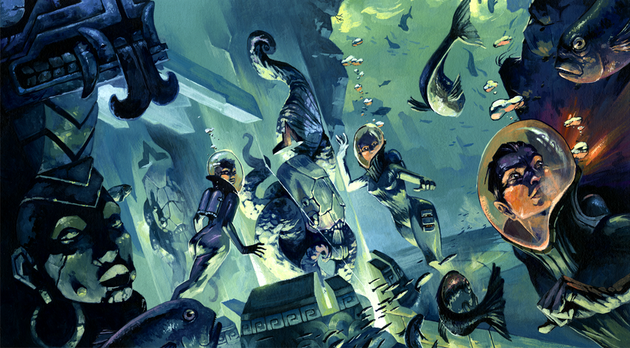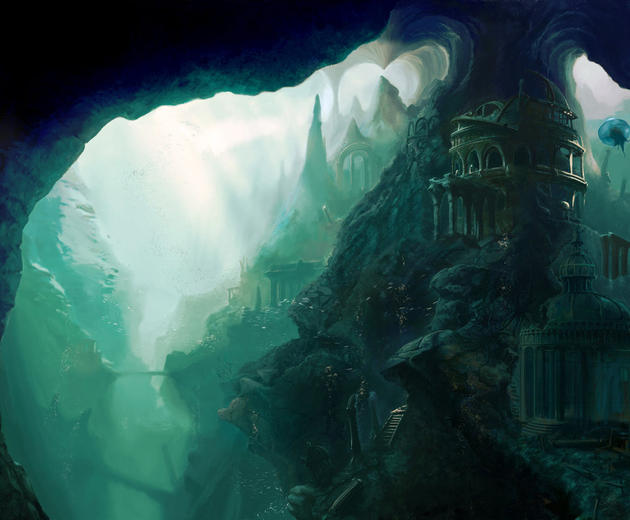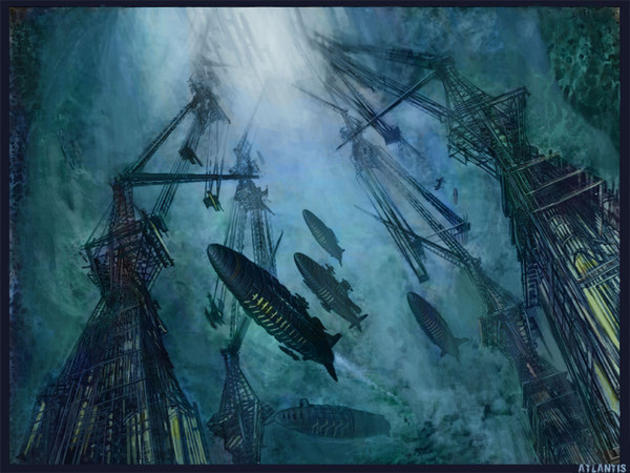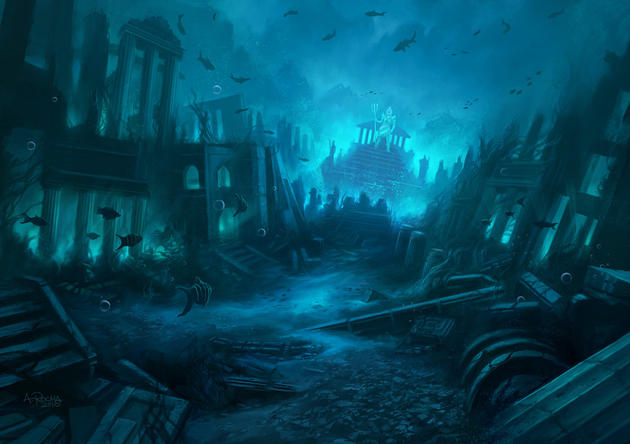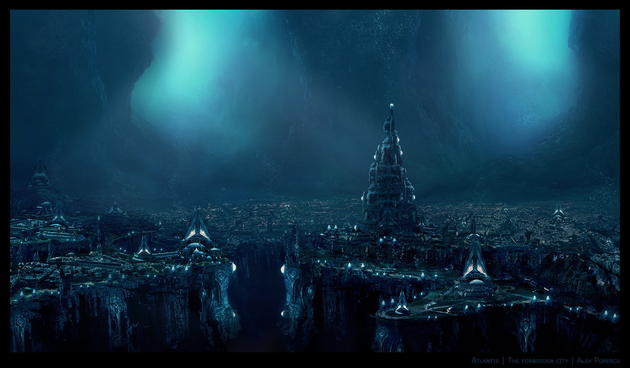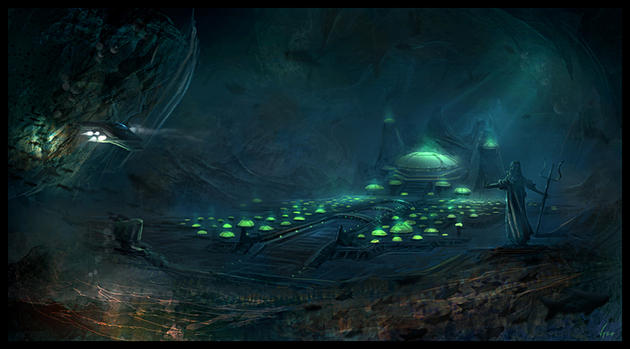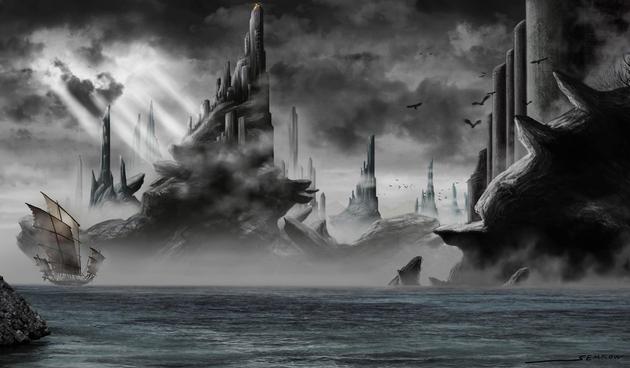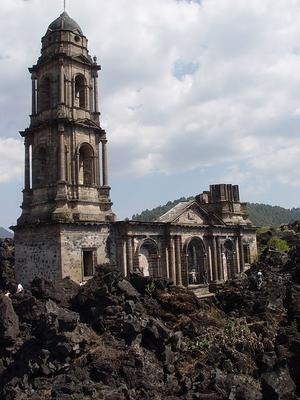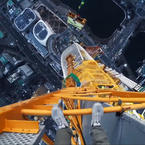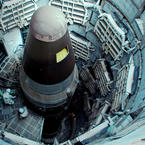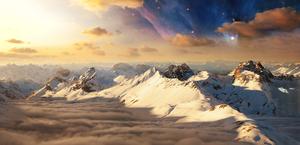The Lost City of Atlantis
Oct 27 2011
The city of Atlantis. Described by many as the most advanced of the human civilizations. Some believe that the city was destroyed by one of the greatest natural disasters known to man, while others believe that it was only Plato's imagination.
The following article contains some "facts", conceptual images and a video. Dream a little!
Atlantis - Poseidonis by *Erebus74
The Legend of Atlantis begins with two dialogues: Timaeus and Critias, written by a classical Greek philosopher, Plato. He describes the inhabitants of Atlantis as a noble and powerful race who lived on the island located in the middle of the Atlantic ocean. Greek myths tell us that Poseidon created a dwelling for a mortal woman he fell in love with, named Cleito. To protect her, he surrounded it with rings of water and land.
Your Island Paradise by ~zimfin
Cleito soon gave birth to 5 sets of twin boys who became rulers of the nation, with Atlas being the first king. Atlantis was a thriving centre for trade and commerce thanks to its location and natural resources.
warriors by ~Roboto-kun
Unfortunately as it is with all the lost civilizations, greed and power started to corrupt Atlanteans. Zeus was angered by the immorality of humans and had to decide the fate of Atlantis by gathering other gods and determining the punishment. At the peak of its power, Atlantis was swallowed by the seas after a terrible earthquake.
The Fall of Atlantis by ~Gaius31duke
Atlantis “Facts”
It is believed that the centre of the city was connected to sea by an extremely large and and deep canal - almost 9 km long, 100 m wide and 30 m deep, which makes it even deeper than the Panama canal which reaches 18 m at its deepest location.
Atlantis by ~Phoenix74n
At the very top of the central mountain, a temple was built to honor Poseidon. Inside, a statue of Poseidon rining a chariot that is being pulled by winged horses (Pegasus) was usually surrounded by the elders and rulers of Atlantis who would discuss laws, pass judgements and pay tribute to the Poseidon.
The main city was situated outside of the 1st ring of water and covered 17 km of land. It was very densely populated with most of the island's inhabitants living here.
Beyond the city, a very fertile plain extending for 530 km in length and 190 km in width was surrounded by another canal used to collect water from the rivers and streams of the mountains. The climate of Atlantis allowed for 2 harvests each year. One in the winter, which was fed by rains, and one in the summer that was fed by irrigation from the canal water.
Post-Atlantis. Sacred Lands by ~EyeSeeBlack
Tall mountains surrounded the plain to the north of the 3rd circle. Small villages, lakes, rivers, and meadows would span across the most part of this region. Besides great vegetation, the island was very rich in various metals (gold, copper, bronze, silver) and several kinds of stone. It is also believed that elephants once walked these lands too.
atlantis by ~differentego
Thanks to the size of its army and fleet that consisted of about 1,200 ships, Atlantis was able to rule land far into Egypt and Tyrrhenia.
atlantis by ~Zuccarello
The Modern Atlantis
Today there are several places in the world where one could experience a little bit of their own Atlantis: Atlantis The Palm (Dubai) and Atlantis Paradise Island (Bahamas). I will let the photos do the talking.
Imagining Atlantis
It's always interesting to see how other people perceive Atlantis. Below is some great artwork from artists all over the world. Enjoy!
Lost Thrones of Atlantis by ~KaiCarpenter
The Forgotten Atlantis by *firedudewraith
Atlantis by *andreasrocha
National Geographic: Finding Atlantis (March 2011)
Share this post:
Like our Facebook page & receive daily updates on your wall:
You May Also Like
Ancient Mexican Church Buried in the Past
Sep 1 2011
In 1943 Volcán de Parícutin began erupting without warning, it buried two entire villages in the process. The village of San Juan Parangaricutiro was one of them and the only thing left to remind us of the village that was once here is an ancient church. It is buried under more than 20 feet of lava rock.
